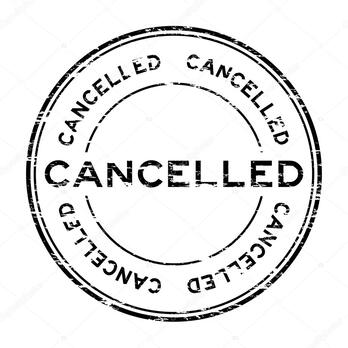THE QUESTION OF #CANCELCULTURE: SEeking sustainability and productivity in a reactionary era5/21/2019 Cancel culture, or the practice of utilizing public pressure to seek accountability or repercussion for a harmful act, lives on a spectrum of productivity.It is hard for me to engage in the outrage every time someone is “cancelled.” Sometimes the outrage leads to an outcome that further represents the world most of us want to live in: Safe and just. I’m then inspired to use my talents and strengths to support the effort/cause. I’m reminded of R. Kelly’s most recent cancellation that went from a trending hashtag to protests to a documentary to court dates. Albeit, it took many many years, but it seems that his music is cancelled, his management team cancelled him, and he was forced to be held accountable in court. Then there was Nate Parker’s rape allegation scandal from 1999 that imploded on the cusp of the release of Birth of a Nation. Unlike previous moments of public outrage, this time did not feel as righteous. The hashtags and on-brand opinion pieces saturated my timeline, as a shadow loomed over survivors still living in secret or silence. What was Nate Parker’s public shaming doing for them? It seemed like everyone was yelling into the void without real focus or intention. Each new bout of public cancellation makes me question how much I can participate in the act of cancelling someone and how much it aligns with the way I want to implement change in this world. At some point I had to ask myself what do I hope to accomplish with someone being cancelled? Healing and education are a part of my mission. Where is that seen in cancel culture? Do I want them to go to jail? Do I want an apology? Do I want someone to feel shame or be shamed? Do I want justice or healing for the harmed party? What does that look like? And if I got all of these things, who would it help? How productive is my public display of outrage? Is it sustainable or necessary for me to be outraged every time someone is cancelled?I have yet to see someone get cancelled gracefully and the person who got cancelled respond in a way that pleases the general public. I have yet to see the general public "un-cancel" someone. Jussie Smollett was an interesting case in that he was cancelled by some and supported by others. The justice system investigated and seemed to make things worse and more complicated. The general public, who did the cancelling, seemed to be misinformed and exploited the issue. Did you know there are Jussie Smollett shirts for sale? With that said, cancel culture has put a spotlight on how powerful the people can be when they’ve had enough, which is a practice I can stand behind sustainably with intention. There seems to be a heightened awareness of the power of our dollar and our time. When the numbers decline, they have to reply. That’s why Georgia is scrambling right now to keep the production companies in their state after signing the “heartbeat bill”.
The number of things to cancel and be held accountable for keep rising, which is not a surprise considering the era we are living in and the physical, psychological, and political violence that we are experiencing every day. The message is clear: We need to ACT NOW and time is running out. But how I react needs to align with my mission or I am moving without purpose or focus. Hence, how WE act and mobilize sustainably is an important question worth holding space for.
0 Comments
Leave a Reply. |
AuthorTayllor Johnson currently resides in New York City where she has begun her journey into Poet. Passion. Period. In between those learning moments, she sometimes has just enough time to jot a few lines... Archives
March 2021
Categories
All
|
